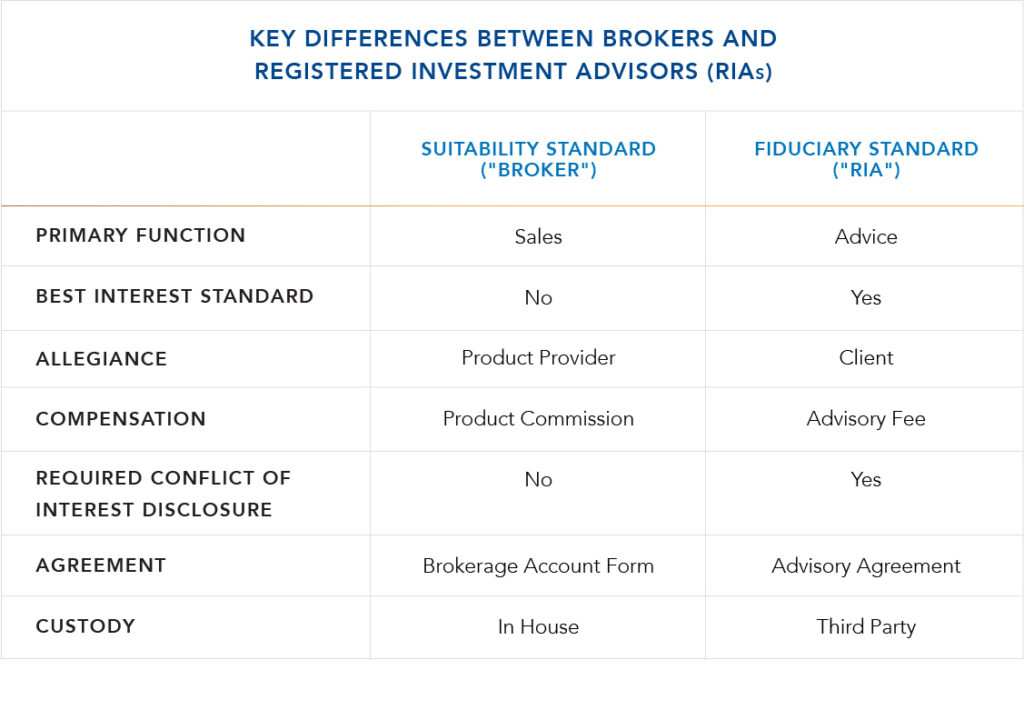WINNING THE FINANCIAL ADVISOR “NAME GAME”

THOUGHT LEADERSHIP PERSPECTIVES
BY DOUG MORISOLI, CPA, CFA, CFP®
APPROXIMATELY 142,926* INDIVIDUALS IN THE STATE OF PENNSYLVANIA WILL RETIRE THIS YEAR—THAT’S 392 PEOPLE PER DAY! COULD YOU BE ONE OF THEM?
Even if you’re not one of these statistics just yet, consider this: Approximately 2 million people in the state of Pennsylvania are between the ages of 50 and 59. Assuming 65% work, that’s 1.3 million people ripe for retirement in the next decade.
If you are about to become one of these statistics, it may be time to get serious about your financial affairs. You believe you’ve done a pretty good job of managing things, so far. Still, you’re concerned about validating that hunch.
- What about my deferred compensation payout elections and stock options?
- How can I diversify my company stock holdings into a broader portfolio strategy?
- What should I do with my 401(k) plan?
- How might I replace my company-provided insurance?
- Should I retire now and start a consulting business?
- How does the new Tax Act affect my situation?
THE NAME GAME
It might make sense to seek advice from a financial professional, so you start your research. Unfortunately, this results in a myriad of confusing titles: Financial Consultant, Financial Advisor, Advanced Retirement Specialist, Wealth Manager, Retirement Counselor, Financial Planner and other variations on the theme. It all seems like a name game.
Since investments are an integral part to your overall plan, a good approach may be to sort prospective advisors by the legal standard of care to which they are held. Those who are acting as a broker or sales agent are held to a “product suitability” standard. This group typically consists of stock brokers and life insurance agents, whose primary function is that of a salesperson; investment advice is merely incidental to their role.
On the other hand, “investment advisors” are required to register with the SEC or state regulators. A Registered Investment Advisor is held to a fiduciary standard that requires a higher standard of care than product suitability. Under this standard, an advisor must do what is in your best interests. A Registered Investment Advisor is also required to provide a disclosure document, called Form ADV Part 2. This provides details as to fees, conflicts of interest, business practices, disciplinary record and other information. Brokers and sales agents do not have a similar disclosure requirement and are only required to provide you with a prospectus for the products they sell.

EVEN AFTER YOU NARROW DOWN YOUR SEARCH TO ONLY THOSE ADVISORS WHO ARE REQUIRED TO WORK IN YOUR BEST INTEREST, RECOGNIZE THAT NOT ALL ADVISORS ARE EQUAL.
Since you’ll be relying on your advisor to help guide you through critical investment decisions, it seems appropriate to work with an advisor who is held to the highest fiduciary standard. While that may be a great starting point, there is more to consider. Although Registered Investment Advisors are held to a fiduciary standard, some may have conflicts of interest that otherwise would cause you to rule them out. Some may limit their advice to products from an affiliated company or ones they are paid to promote.
I’D LIKE TO HELP YOU REFINE YOUR ADVISOR SEARCH, SO CONSIDER ASKING THE FOLLOWING QUESTIONS DURING YOUR INTERVIEW PROCESS:
SCOPE OF PRACTICE
Does the advisor cover all the areas you need? You will often encounter the term “comprehensive financial planning;” however, many advisors using that term do not provide any advice related to taxes, estate planning and other critically important areas of financial planning.
EXPERIENCE
Are you confident that the firm and the actual advisor you will be working with have deep experience providing planning to someone in your situation? Even if a senior level professional attends your first meeting, ask who will be working directly with you. What is their experience working with others in a similar situation? How do they address topics outside their competency? Will they provide references?
CREDENTIALS/LICENSING
Do they possess credible recognized credentials and regulatory licensing appropriate for your planning needs? A word of caution: In addition to the name game, you may encounter the “letters after the name” game. Make sure you understand the substance of each. Examples of a few recognized credentials include Certified Public Accountant (CPA), Certified Financial Planner (CFP®), and Chartered Financial Analyst (CFA). You may also encounter letters representing internally awarded titles that lack any rigor or substance.
WITH RESPECT TO THE AREA OF INVESTMENTS, YOU CAN DECODE THE NAME GAME BY SIMPLY ASKING WHAT FINRA SECURITIES LICENSE THE ADVISOR POSSESSES.
A “Series 7, General Securities Representative” indicates the individual is a stock broker that can sell a wide range of investment products. A “Series 6, Investment Company Products/Variable Contracts Limited Representative” refers to brokers and insurance agents who sell products limited to mutual funds and investment-oriented life insurance policies and annuities. “Series 65, Investment Advisor Representative” designates someone who offers investment advice and recommendations but does not allow them to sell products.
FEES & COMPENSATION
How are both the firm and an individual advisor that works with you compensated? Brokers are typically compensated based on product sales and account production goals. Is the advisor recommending an annuity because it is the best product for your situation or because they will get a vacation to Hawaii for selling ten annuities? Do they recommend products from a broad investment universe or do they limit their recommendations to proprietary in-house products or products from firms that pay them to promote their offerings?
IT WOULD SEEM MOST DESIRABLE TO SELECT A FEE-ONLY ADVISOR WHO IS COMPLETELY INDEPENDENT AND SITS ON YOUR SIDE OF THE TABLE WITH RESPECT TO INVESTMENT AND INSURANCE PRODUCT DECISIONS.
Another name game word of caution: “Fee-based” is not the same as “fee-only.” Fee-based means that you will be charged an advisory fee in addition to product fees. When considering a fee-only advisor, understand the basis for calculation of the advisory fee. Is it determined from a fee table by the amount of assets under advisement? Some prefer that method as they believe it aligns the interest of the advisor with the client (i.e., if the portfolio goes down, the advisor’s fee goes down). Others prefer a fixed fee arrangement. Regardless of the method, it is important that you understand not only the advisor’s fee but the fees that would be associated with their product recommendations (e.g., mutual fund expense ratios).
DISCLOSURES
Carefully read the prospective investment advisor’s SEC disclosure document Form ADV Part 2. This should be your roadmap to confirm the information on the above topics. If the advisor does not provide this document, they are sales people, not Registered Investment Advisors. At a minimum understand their fee and compensation arrangements, potential conflicts of interest, information security policies and disciplinary record.
When reviewing disclosure materials, you should pay particular care to determine if your prospective advisor is “dual registered.” According to the 2018 FINRA Industry Snapshot, 45% of brokers are also dual registered as individual representatives of investment advisors (IARs). Such dual registration can result in a “hat switching” situation creating confusion where an investor is unclear as to what standard applies to the relationship at any point in time. The SEC has expressed concern that this relatively new business model presents multiple conflicts. There may be conflicts of interest in the financial incentives for making product recommendations, satisfying suitability obligations and whether such conflicts are adequately disclosed.
METRICS FOR ACCOUNTABILITY
What metrics will be in place to assure accountability for any ongoing advice or planning services? How do they define and consider your objectives, risk, required investment return, projected tax rates and other important details? Will they be providing regular reporting on performance versus agreed on benchmarks? How frequently will you meet?
CONSIDER A FAMILY OFFICE
Armed with a better understanding of the landscape for investment advice, how do you pull together all the areas for your planning needs? Who will address the question raised regarding retirement analysis, income tax planning, insurance and benefits planning? Maybe the ideal solution is a type of firm you failed to search for: An independent family office. A family office is comprised of a team of professionals to address the comprehensive needs of individuals and families and is also held to a fiduciary standard. As such, we can help you with the Name Game by serving as your one-stop solution for integrated planning.
TO LEARN MORE ABOUT HOW A FAMILY OFFICE COULD WORK WITH YOU, CONTACT ONE OF OUR PROFESSIONALS FOR A COMPLIMENTARY CONSULTATION.
*Extrapolated from U.S. Department of Labor, Census, and other public information.

